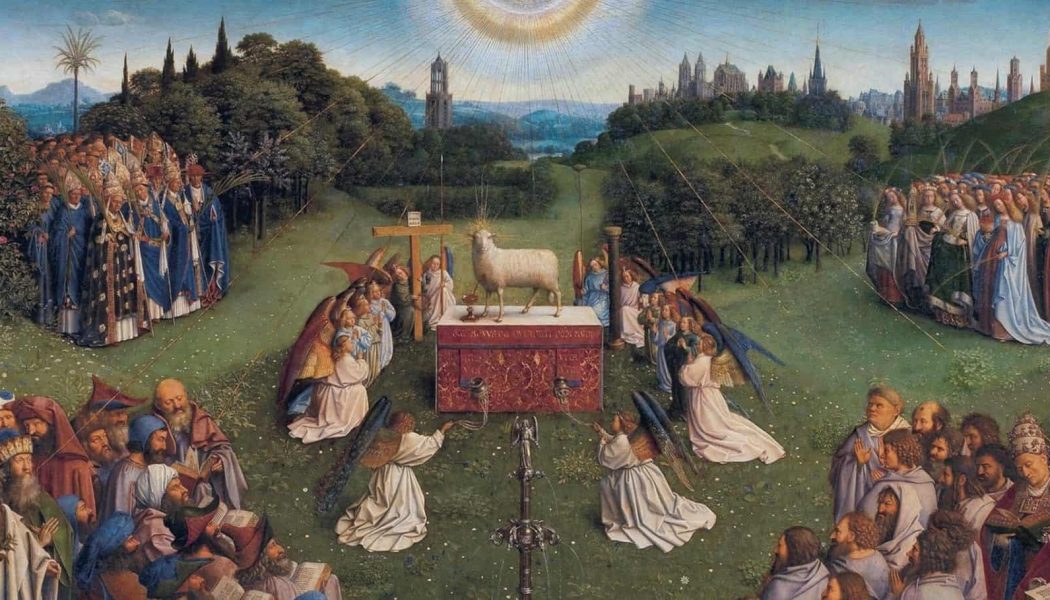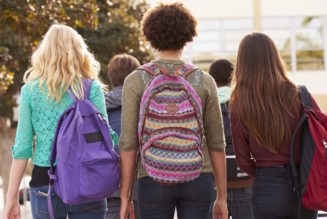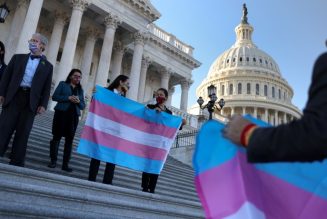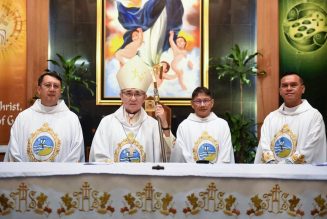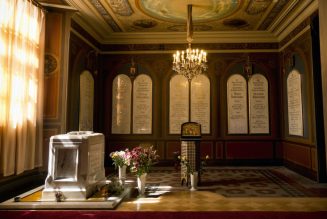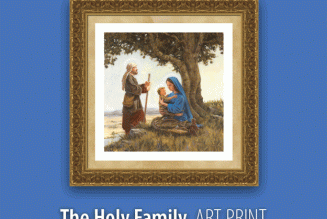
“Martha, Martha, you are anxious and troubled about many things, but only one thing is necessary” (Lk 10:41-42). It would be easy to imagine Christ saying this to us now, calling us away from our anxieties to sit at his feet, like Martha’s sister Mary. Jesus wants to give us the peace that we need in the midst of our anxiety about “many things.” By calling us into communion with him, Jesus shows us that He is the one thing that is necessary, the most essential thing in our lives.
Anxiety may be understandable at this moment, but to face it God continues to remind us of what is ultimately most important. Because he didn’t make us for this world, he offers us a happiness that doesn’t depend on earthly peace and stability. Even in suffering, God “makes all things work together for the good for those who love” Him (Rom 8:28). On our own, we fall into anxiety but with Jesus we can face any difficulty: “It is I; do not be afraid” (Jn 6:20). Possessing the one thing necessary, we can say with Paul, “I can do all things in Christ who strengthens me” (Phil 4:13).
We call the Eucharist the source and summit of our faith because through the supernatural life it bestows, we become truly alive. The early Christians realized this and were willing to risk everything just to go to Mass. This was incomprehensible to the Romans, leading one prosecutor to ask Christians on trial in Abitinae, North Africa why they did it. Sine Domenico, one of the martyrs answered, non possumus, that is, “without the Lord’s [Day], we cannot live.” The editor who wrote the account of their martyrdom commented, “O foolish question, as if someone could be a Christian without the Lord’s Day.” I recently heard someone express a similar notion: “I’d rather die with the sacraments than live without them.”
Cardinal Robert Sarah, writing from the Vatican, has recently called the entire Church, in his letter “Let Us Return to the Eucharist with Joy,” to return to Mass as quickly as possible. Quoting Jesus’ own words, he reminds us, “‘He who eats my flesh and drinks my blood remains in me and I in him’ (Jn 6:56). This physical contact with the Lord is vital, indispensable, irreplaceable. Once the concrete measures that can be taken to reduce the spread of the virus to a minimum have been identified and adopted, it is necessary that all resume their place in the assembly of brothers and sisters, rediscover the irreplaceable preciousness and beauty of the celebration of the liturgy, and invite and encourage again those brothers and sisters have been discouraged, frightened, absent or uninvolved for too long.” Living without the source of our supernatural life truly threatens the health of our souls and leaves a hole where God should reside in the center of our lives.
Going to Mass has never been a matter of mere obligation. God gave us the commandments to guide us along the path of life. To be truly happy, we must recognize Him as God (the first commandment), truly honor and respect Him (the second commandment), and show our commitment to Him by setting aside time faithfully for worship (the third commandment). We do not simply go to Mass for ourselves. If this were true, we could easily fall into a consumerist mentality of seeking out only what pleases and serves us individually. We go to Mass out of justice and love: to thank God for all that He has given us; to honor Him for His greatness and goodness; and to place ourselves under His mercy and love. In celebrating the Lord’s Day, giving one day a week back to God, we find the rest that we need to live in true freedom by breaking out of slavery to work, distraction, and dependence upon material things.
We can no longer take the Mass for granted; our old habits are no longer sufficient. We need to make a choice about what we find most essential. On February 12, 304, 49 men, women, and children gave their life for the Mass, which the Roman Empire had deemed illegal, in the town of Abitinae, North Africa. This is no mere historical event, as it provides an enduring witness to priority of God above all else. More recently, just a little down the Mediterranean coast in Libya, on February 15, 2015, 21 men (20 of them from Egypt and one from Ghana) also gave their life for Christ. Speaking of the death of the 20 men from his diocese, Metropolitan Pavnotios of Samalut related that “far from being intimidating, it gives us courage. It shous us the martyr’s heroic bravery, and the fact that they spent their last moments alive in prayer proves the strength of their faith” (Martin Mosebach, The 21: A Journey into the Land of Coptic Martyrs, Plough, 2020).
We may not be called to give our life for the Mass or for our faith, but we have found that the Mass requires more effort than in the past. It calls us not only to sacrifice in small ways, but to give our life to Christ and to accept him as most essential in our lives. Archbishop Salvatore Cordileone, facing “willful discrimination” in San Francisco, has led the charge in showing us how free exercise of religion has been eroded in our country. Under the banner of “We are essential: Free the Mass!” he explained: “The highest law is love of God and love of neighbor, and that law has to take precedence over the human-made law of the state when government would ask us to turn our backs on God or our neighbor in need.” The witness of the martyrs remains pertinent, indeed.
What is most essential in your life? What are you willing to do to preserve your right to worship God? We are now all faced with these questions. Jesus continues to invite us to sit at His feet and to remind us, “only one thing is necessary.”
Join Our Telegram Group : Salvation & Prosperity
